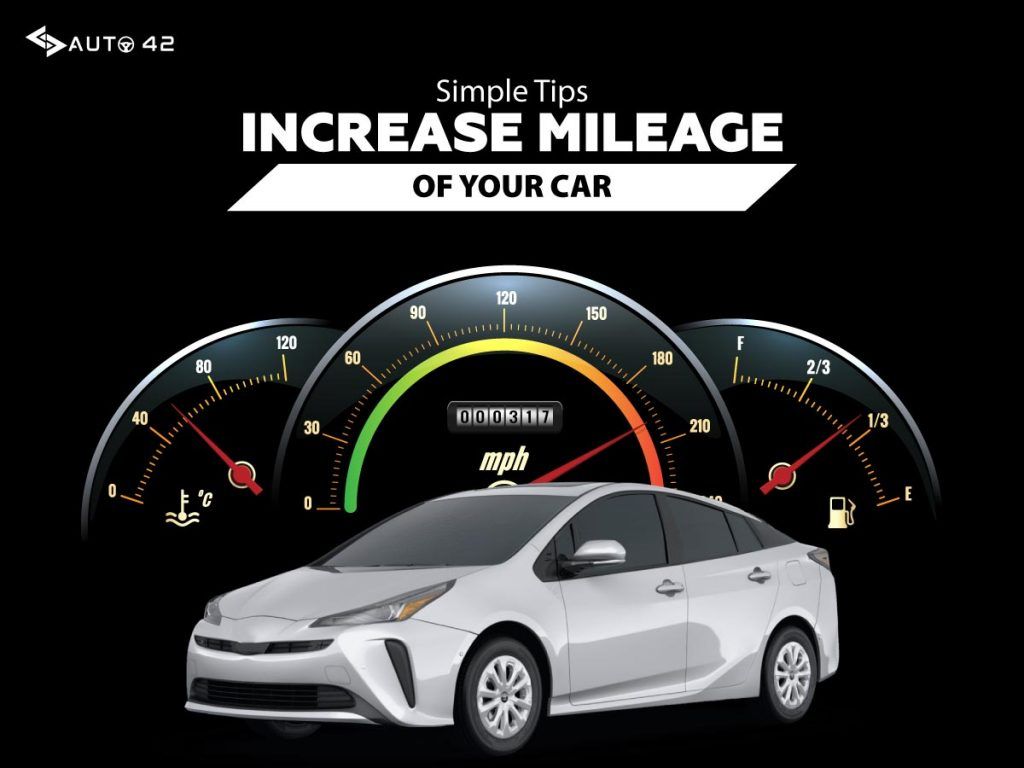No person wants his/her car to give a poor mileage and hence desires for some of the best tips to increase the mileage of a car. So, if you are looking for some of the tips to increase the mileage of your car then you have landed on the perfect page as this blog will help you to get some of the best tips to increase the mileage of a car.
Tips to Increase the Mileage of a Car
Keep the Engine of your Car in Good Health
Taking care of your car is one of the most effective ways to increase the mileage of a car. Your car will consume more fuel if the filters are dirty and clogged. A clogged air filter restricts airflow, lowering oxygen levels in the mixture. As a result, the car engine will compensate and use more fuel than necessary because it will generate more power to cover the same distance as it could with a clean filter.
Reduce the Load Inside the Car
The second suggestion will be extremely beneficial. You can save money on gas if you leave extra or bulky items at home. Do you know that adding 100 pounds to a car reduces gas mileage by 1%? These issues are more prevalent in smaller vehicles. As a result, avoid putting too much weight in your car and see how much money you can save on gas from now on.
Make use of a Correct Engine Oil

Check to see if you are using the right engine oil grade, as this has a direct impact on the engine’s mileage. In your vehicle’s manual, you’ll find information about this.
Be easy on the use of Pedal
If you’re still looking for ways to get better gas mileage out of your car, try easing off on the gas pedal. By speeding, braking, and then accelerating quickly, you waste even more gas. Furthermore, bad driving habits reduce fuel efficiency by 15% to 30%. As a result, try this method out and see if it works for you. Check to see if you’re using the right engine oil grade, as this has a direct impact on the engine’s mileage. In your vehicle’s manual, you’ll find information about this.
Make Sure that you are maintaining the right Air Pressure
The efficiency of a car is directly linked to driving with the proper air pressure. When tyre pressure is low, the contact area between the road and the tyre is larger than normal. As a result of increased friction between the rubber of the tyre and the road, more fuel is consumed. Over-inflated tyres, on the other hand, save fuel but reduce grip and resistance to aquaplaning. That is why it is important to maintain proper tire air pressure.
The fuel efficiency of your car is greatly improved when you drive with the proper tyre pressure. Increased contact area between the tyre and the road means lower tyre pressure. As a result of the increased friction between the rubber of the tyre and the road, fuel consumption rises. Over-inflated tyres will result in lower fuel consumption, but at the expense of grip and water dispersion on the road. You’ll be fine if you make sure the tyres are inflated to the manufacturer’s recommended levels. Also, remember to check them once a week, in the morning.
Also Read, Which should be your Next Car? SUV vs Sedan
Try To Avoid Over Revving
Over-revving can reduce the mileage of a car. Acceleration at a high rate uses more fuel. As a result, if you want to improve your car’s mileage and save money on gas, try to accelerate slowly and gradually.
Make sure you use gears correctly
To get the most mileage out of your vehicle, you must change gears correctly. This is true for the cars having both the transmissions i.e. manual and automatic. Use the right gears at the right time to save gas. The fuel efficiency of your car is greatly improved when you drive with the proper tyre pressure. Increased contact area between the tyre and the road means lower tyre pressure.
As a result of the increased friction between the rubber of the tyre and the road, fuel consumption rises. Over-inflated tyres will result in lower fuel consumption, but at the expense of grip and water dispersion on the road. You’ll be fine if you make sure the tyres are inflated to the manufacturer’s recommended levels. Also, remember to check them once a week, in the morning.
Keep on checking the alignment of the wheel
Cars that are misaligned can have a negative impact on mileage and fuel economy. Fuel efficiency can be reduced by up to 10% if the alignment is incorrect. It can also harm tyres by causing them to wear out prematurely. Uneven tyres can result from symptoms such as a vibration in the steering wheel, resulting in lower car mileage. As a result, inspect your tyres carefully or visit a garage to ensure that they are properly balanced and aligned.
Leave the Air-Con Turned Off
Turning on the car air conditioner is not necessary unless it is extremely hot outside. Excessive use can put a strain on the engine and result in higher fuel consumption (especially at low speed). This is true for heated windshields, defoggers, and other similar devices.
Maintain an Optimal Speed Limit
Maintaining an optimal speed limit as specified in the vehicle manual is one of the tips for improving a car’s mileage. According to studies, driving at 80 mph uses up to 25% more fuel than driving at 70 mph.
Click here to Calculate your current Mileage
